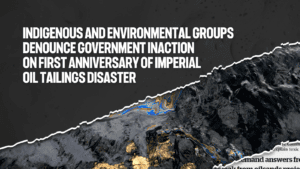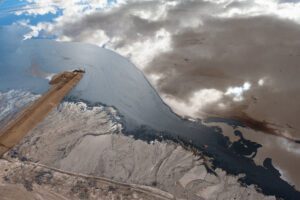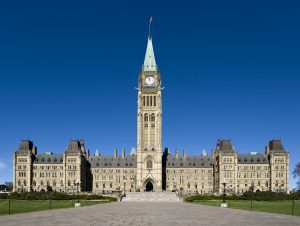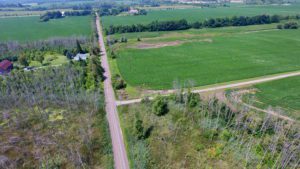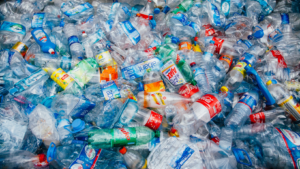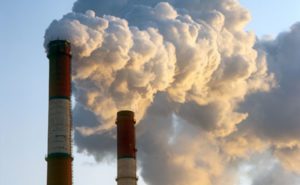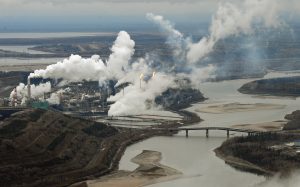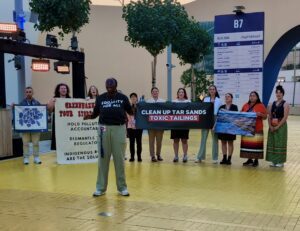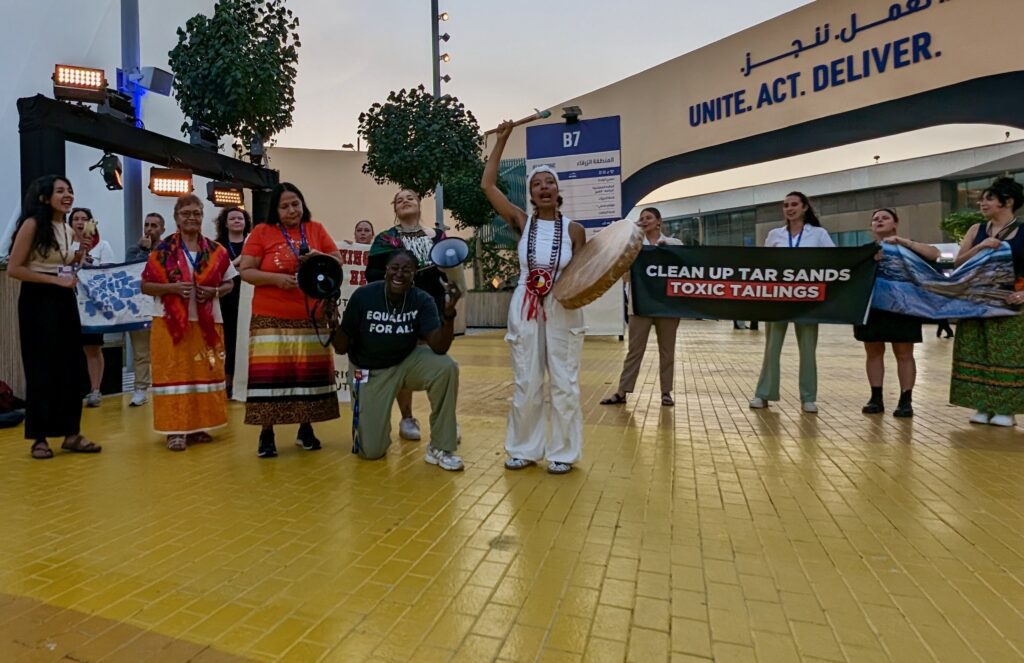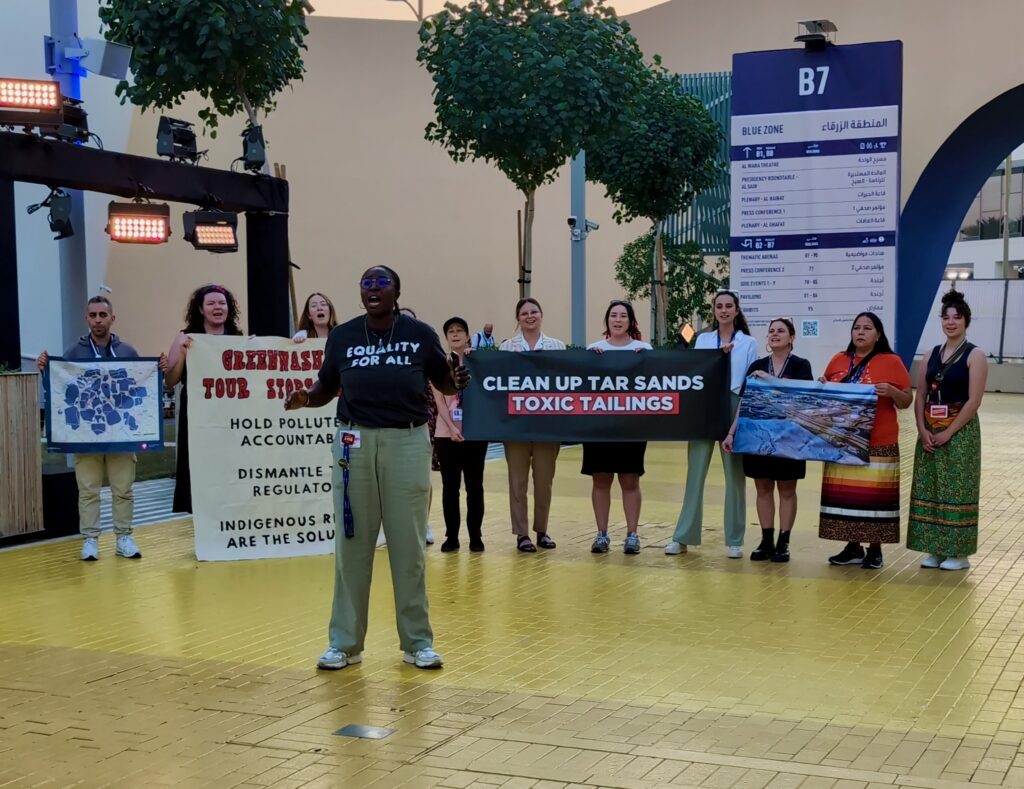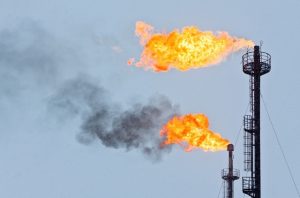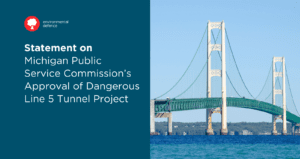
Statement by Emilia Belliveau, Energy Transition Program Manager
Montréal/Tiohtià:ke | Traditional, unceded lands of the Kanien’kehá:ka/Mohawk Nation, a gathering place for many First Nations, including the Anishinaabeg – We applaud the introduction of the Private Member’s Bill C-372, banning false advertising by the oil and gas industry in Canada. If passed into law, the bill would be a valuable step toward limiting misinformation about fossil fuels and countering greenwashing.
The fossil fuel industry has a long and well documented history of denying climate science and funding advertising campaigns to greenwash oil and gas. The industry’s advertisements have misled the public about climate change, downplayed or failed to acknowledge that fossil fuels are causing the climate crisis, ignored the damaging impact fossil fuels have on our health, and misrepresented the “sustainability” of companies or their role in the energy transition. We must be clear: effective climate action requires a transition away from fossil fuels.
Greenwashing is pervasive as the world moves to tackle the climate crisis. But federal regulations and consumer protections in Canada are lacking when it comes to fossil fuel companies’ faulty environmental claims. The Competition Bureau has launched investigations into false advertising by Shell and the Pathways Alliance, both of which changed or stopped running their ads in response. In January, the Competition Bureau announced that it would begin an investigation of Enbridge Gas.
With so many instances of greenwashing and false or misleading claims, the oil and gas industry is manipulating the public’s understanding of the negative climate, health, and environmental consequences of fossil fuels. Continuing to allow fossil fuel advertisements is a threat to climate action, as well as public health and safety. We urge all parties to support Bill C-372.
Background Information
- The bill was put forward yesterday by Member of Parliament Charlie Angus. It will need to be debated in Parliament before moving through the legislative process.
- Similar in form to the 1997 Tobacco Act that put strong restrictions on promotion and advertising of smoking and cigarettes, Bill C-372 prohibits the promotion of fossil fuels or the production of oil, coal, and gas, particularly in a manner that is false, misleading or deceptive. It also prohibits a producer or retailer from offering rebates or gifts in exchange for purchasing fossil fuel products. It makes exceptions for the production of artistic or scientific work, and does not ban signage at retail and sale locations.
- Corporate greenwashing isn’t new, but has come under increased scrutiny as action to address climate change becomes more urgent. To help address the issue, the United Nations appointed former Canadian Minister of Environment and Climate Change, Catherine McKenna, to lead a high profile committee to tackle greenwashing. The High-Level Expert Group on the Net-Zero Emissions Commitments of Non-State Entities has developed recommendations on how non-state actors like companies must act in alignment with their net-zero commitments, in order not to greenwash.
ABOUT ENVIRONMENTAL DEFENCE (environmentaldefence.ca): Environmental Defence is a leading Canadian environmental advocacy organization that works with government, industry and individuals to defend clean water, a safe climate and healthy communities.
– 30 –
For more information or to request an interview, please contact:
Allen Braude, Environmental Defence, media@environmentaldefence.ca
The post Statement on Proposed Act to Ban Fossil Fuel Advertising & Greenwashing appeared first on Environmental Defence.
This post was originally published on Environmental Defence.
